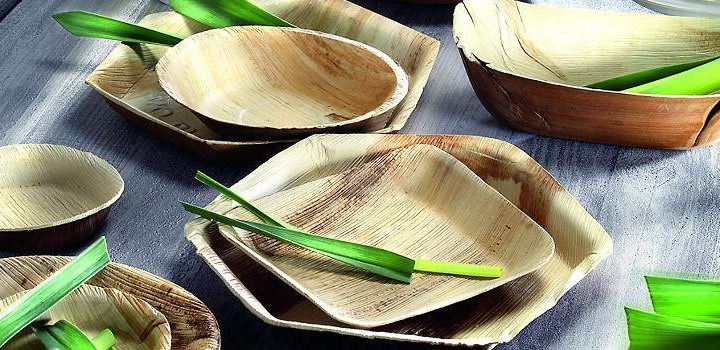Are you Considering the Move to Compostable Packaging Options?
Published date: 13/02/2019 10:08

Every single action we take can have a profound effect on the world we live in.
In recent years, the world has become more attuned to recycling, sustainability and carbon footprint. Small actions like properly separating and disposing of your recyclables, may seem inconsequential. However, when multiplied by person to person, these practices compound and have a great impact on the environment.
For individuals, it can be difficult to appreciate the value of those simple actions. However, for a business, the knock-on effect is much more visible. For businesses, you see how your stance can influence your customer base. Suddenly, your one action is multiplied by the number of people you engage with every day.
At Zeus packaging, we have witnessed a huge number of companies, for example cafés and salad bars, moving to sustainable packaging and discovering the positive impact that their decision has made. Many of those businesses have made the powerful switch from single use plastic packaging to compostable packaging. It might be something that you are considering too.
What is Compostable Packaging? - What Defines Compostability?
You might think that words such as biodegradable packaging, eco-friendly packaging and compostable packaging are interchangeable. To a certain extent they are. Compostable packaging is biodegradable. Biodegradable means that something will decompose over time, thereby avoiding pollution. Biodegradable packaging for that reason would be considered eco friendly or could be labelled as eco packaging. However, the difference between biodegradable packaging and certified compostable packaging comes down to the products life cycle and the time the item takes to decompose.
Biodegradable packaging is packaging that will decompose over time. This could take weeks, but could also take months or years. With compostable packaging, the parameters are clearly defined. If an item is compostable it means that it will break down into nutrient rich soil within 180 days when commercially composted.
How does Composting Work?
Composting, the practice of making organically rich soil amendments from organic waste, requires a number of conditions but is dependent on one thing - the microbes responsible for decomposition. These single-cell organisms, working through strength in numbers, turn your compostable materials into the rich humus that’s the foundation of all great growing soils.
It might seem like a tall order to pass the mantle onto microbes to complete the composting process. In reality, it's quite simple. These naturally occurring microorganisms already cover soil and "eat" their way through organic matter to live. So, to encourage the process of composition you need four elements. The organic matter (i.e.compostable packaging, food waste or leaves, etc) and the soil (which essentially means the microbes living in soil). The final two components are air and water which are needed to keep the soil healthy.
This simple process of adding compostable materials to soil and ensuring that the soil stays healthy enough to carry out decomposition, is the formula behind home compost bins and commercial composting alike. The end result is nutrient rich compost or biogas fertiliser that is used in the production of more compostable materials.
Can You Do The Composting Yourself?
We have already established what compostable packaging is, the length of time a compostable product takes to decompose and the process behind decomposition. We get asked a lot if it is possible to do the composting yourself. The answer, of course, is yes.
Whether you are a homeowner that wants to dispose of compostable materials responsibly, or a business using compostable materials, you can play a part in the final process. You can do this by having your own compost system where you tend to the soil and make use of the compost produced. You can also use a green bin, where you include organic compostable materials only, that gets collected by a responsible waste disposal company.
Choosing Compostable Packaging
Now that you better understand the process of composting, you might be interested in checking out our wide range of compostable products. To do so, you can check out our website and discover our range of eco-friendly options. Here you will find compostable coffee cups, lids, compostable cutlery, compostable food packaging and lots more.
"We are delighted to use Treefree Cups from Zeus as well as Zeus’s compostable bins and collection service in our cafes. Additionally, to make sure the cups are collected from our cafes by Zeus, we all have a really important role to play. That role is simply putting the compostable items in the dedicated compost bin in our cafes. This simple action means we are making the best sustainable choice. By doing this, the compostable products can be broken down and turned into natural resources. We have always wanted to make the world a better place. We constantly try to make small changes to be kinder to the environment and leave less of a footprint."


